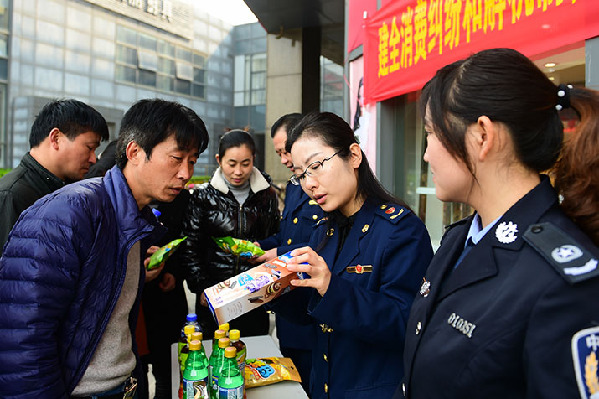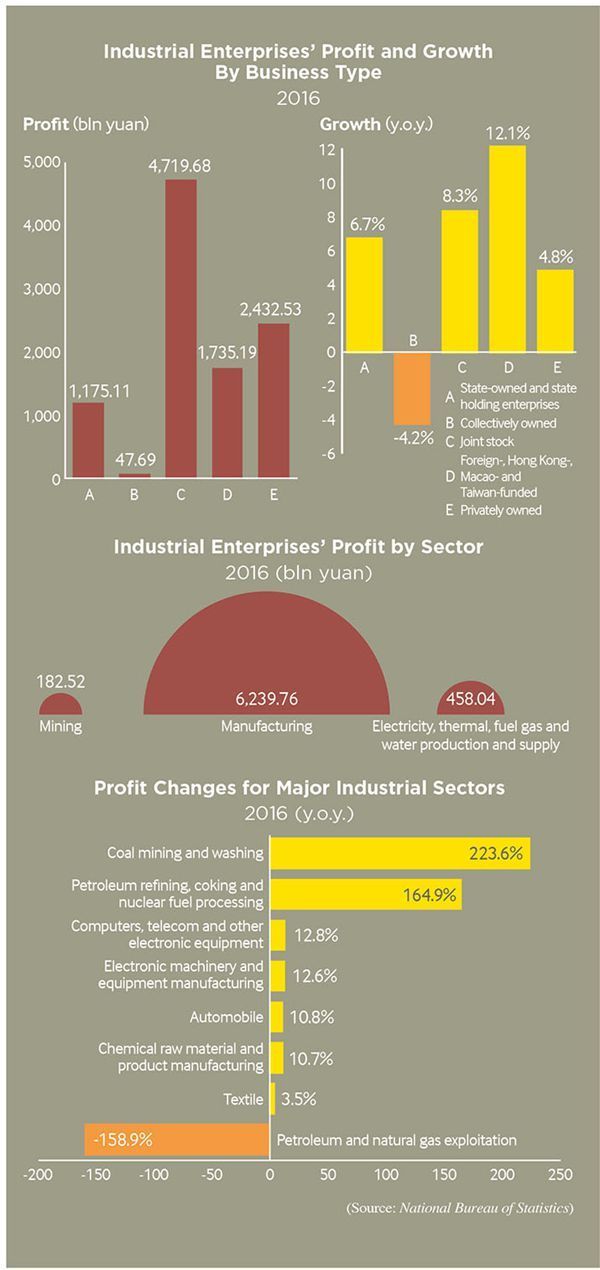Cracking down on counterfeits requires concerted efforts
- By Tan Haojun
 0 Comment(s)
0 Comment(s) Print
Print E-mail Beijing Review, February 15, 2017
E-mail Beijing Review, February 15, 2017
 |
|
Staff members from the local market inspection and management department show consumers how to tell the difference between authentic and counterfeit products in Hefei, capital of Anhui Province, on March 14, 2016 (XINHUA) |
The world's first big data anti-counterfeit alliance was set up by China's e-commerce giant Alibaba Group Holding Ltd. on January 16. The alliance, which has about 20 members, issued a joint action plan, vowing to use big data and Internet technology to fight the sale of counterfeits in a more powerful, efficient and transparent manner. Members of the alliance are manufacturers of world-known brands who are likely to be affected by sales of counterfeits. Their response indicates a common understanding of the need to crack down on imitation products.
Nonetheless, establishing an accord is just the first step needed to be taken. At least two more tasks must be completed to ensure that counterfeit production is deterred.
First, they should figure out why fakes are produced. Ersatz products have existed for a long time in both domestic and foreign markets. Imitations made in China are sold to foreign markets and vice versa through various channels. Now online sales have become a new target.
In particular, online shopping sprees such as the Singles' Day shopping festival that falls on November 11 every year have put more pressure on physical stores to survive. As a result, members of the public may believe that the Internet facilitates the sale of forgeries. However, this phenomenon exists regardless of the Internet. Fakes are not a result of online sales, but a result of the flawed supervisory system that tolerates their existence.
The second task is to undertake concerted efforts to fight fraudulence. The government must crack down on all fake goods sold both online and offline. Regardless of where these products are sold—be it online or offline—they are first produced in brick-and-mortar factories. If the government fails to control the sources of counterfeit production, these products will continue to spread. Therefore, more stringent supervision over the production process is key to the government's anti-counterfeit campaign.
Of course, sales of those products can be curbed if e-commerce websites strengthen their oversight. But that would merely be a stopgap measure, not a permanent cure. On top of that, the government must strengthen its supervision of the production process, and adopt a zero tolerance policy on the production of fakes.
Whether Alibaba's initiative can become a source of information to help crack down on counterfeiting will be determined by whether or not related departments and local governments can collaborate with each other on this matter.
E-commerce websites need not bear the blame for the existence of fake products. Concerted efforts are needed to strengthen the supervision of both online and offline sales as well as the production and sales sectors to crack down on counterfeits.

The author is an economic commentator and the article was published in Economic Information Daily





